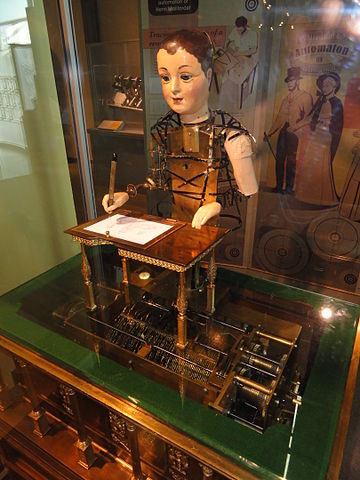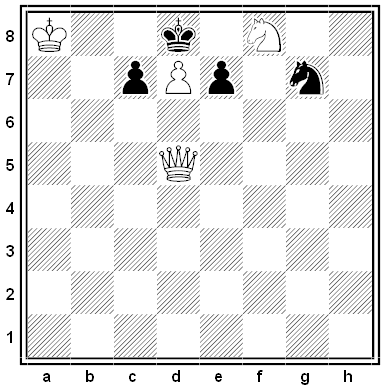
Martin Scorsese’s film Hugo was inspired by a real event. In 1928 Philadelphia’s Franklin Institute received the remains of an 18th-century brass automaton that had been damaged in a fire. It had been donated by the descendants of wealthy manufacturer John Penn Brock; they knew it had been acquired in France and supposed it to be the work of the German inventor Johann Nepomuk Maelzel, famed for his metronome.
The institute’s machinist set about restoring the machine and discovered that its mechanism used an ingenious system of cams to store almost 300 kilobits of information. When he had finished his work, he placed a pen in its hand and watched it draw four strikingly elaborate illustrations and write three poems (click to enlarge):
The final poem contained a surprise — in its border the machine wrote Ecrit par L’Automate de Maillardet, “written by the automaton of Maillardet.” The automaton’s creator was not Johann Maelzel but the Swiss mechanician Henri Maillardet — and this fact had been remembered only because he had taught the machine to write his name.
Subsequent research showed that Maillardet had created the automaton in the 1700s and exhibited it throughout Europe and Russia. How it came to America is not known. It’s on display today at the Franklin Institute, which demonstrates its talents publicly several times a year.

















